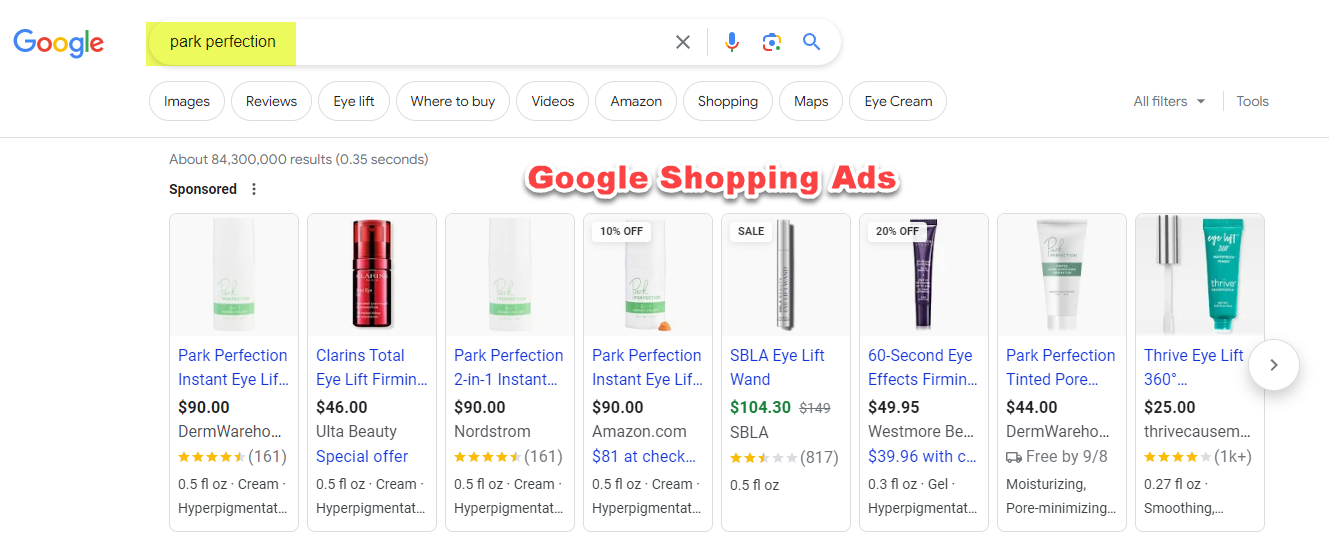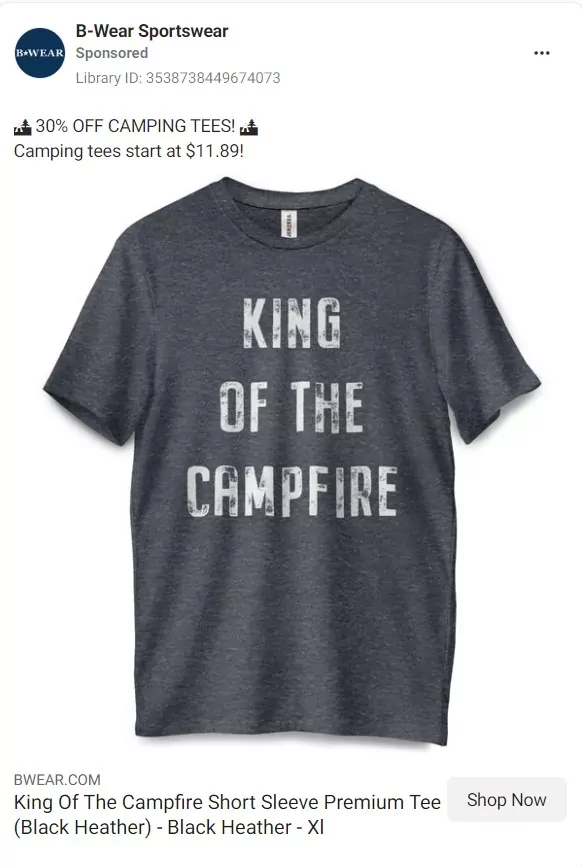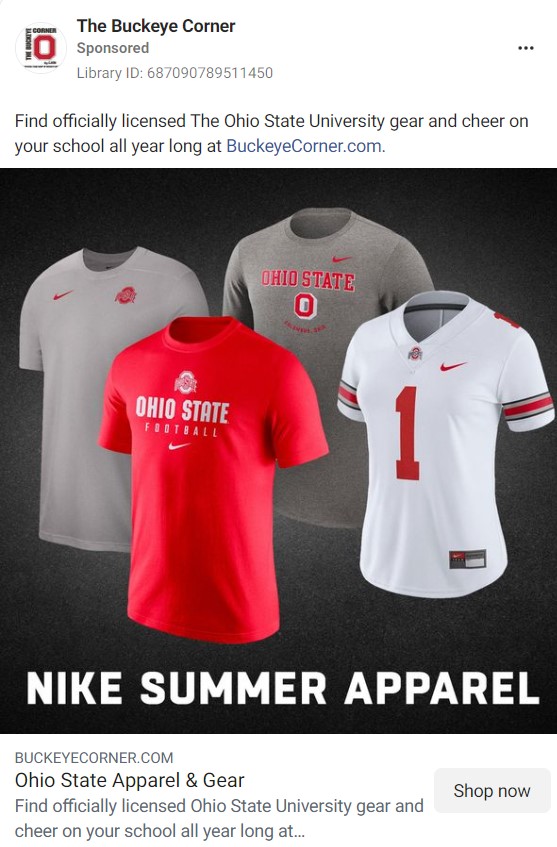As an advertiser, would you be better off spending your money on Google or Facebook?
Google owns a 39% market share of digital advertising revenue worldwide, followed by Facebook, with a projected digital ad revenue share of 18% [source]. Advertisers flock to Google and Meta since this is where the eyeballs and attention are.
Within this blog, you’ll learn more about the strong intent of Google vs. the interest and behavioral targeting on Facebook. Once you understand this concept, it will be easier to determine whether to allocate more advertising budget to Google or Facebook.
Is Google or Facebook Better for Advertisers?
Based on my experience overseeing hundreds of clients, Google is a better investment when there is strong search intent for a product or service. Facebook and Instagram are more viable options for a business looking to increase exposure and awareness.
Our clients spend 4x the amount on Google compared to Facebook. Only 15% of our clientele are eCommerce. For a strictly eCommerce-focused agency, most of their ad spend could go to Facebook and Instagram vs. Google.
There isn’t a black-and-white answer to whether Google or Facebook is the better option for advertisers. I always recommend a blended approach to advertising where the budget is diversified amongst channels, testing is taking place, and all business initiatives are considered when allocating funds.
Pro Tip: You can look at your competitors’ ads on Google via the Ads Transparency Center. You can do the same on Facebook via the Ads Library.
Related Blog: How much money should you spend on advertising?
What Is a Google Advertisement?
- A Google Advertisement is primarily a text-based advertisement.
- The advertiser selects keywords to bid on.
- The advertisements only populate if the person searching types in your selected keyword or a close variation.
- The advertiser is only charged when someone clicks on the advertisement based on the cost-per-click model.
- The industry’s competitiveness determines the cost per click and how much competitors will spend to appear at the top of Google.
Below are the details of what’s included in a Google Ad:
- Headlines (30 characters)
- Descriptions (90 characters)
- Image Extensions
- Business Name
- Business Logo
- Sitelinks
- Promotions
- Prices
- Call Extensions
- Structured Snippets
- Lead Forms
- Location Extensions
Example Google Ads
Aspen Dental
If someone is searching for a “Columbus Dentist,” there is a high probability they are in the market for a new dentist. It’s no coincidence that Google has an 8% conversion rate versus Facebook’s 3%. There is high intent on Google.
Park Perfection
If your store were to carry a specific brand of products, there’d be strong intent when someone was searching for this brand on Google, which could lead to high conversion rate on your site. Below is an example of a Google Shopping advertisement for Park Perfection.
 Google’s Strong Intent
Google’s Strong Intent
Google’s advantage over Facebook is keyword bidding versus target-based bidding. Advertisers love Google because they only have to pay after someone searches for a highly intentional keyword and clicks on their advertisement. It’s no coincidence that Google generates over $225 billion in ad revenue annually. Strong intent leads to a high conversion rate.
Advertisers That Benefit From Google Ads
If you can think of keywords that people would type into Google to find your business’s services or products, Google Ads is a viable option. A good experiment is to develop a list of 10 ways people would search on Google to find your business.
Below are examples of businesses that Google Ads would work for. This is the critical thinking exercise we do at our agency when taking on a new client and determining where to allocate funds.
- Personal Injury Lawyer
- There are no targeting options on Facebook for someone in a car accident.
- If someone were injured in an auto accident, they would likely go to Google to search.
- The intent is very high when someone feels they should be compensated for an injury.
- Below is the budget allocation we would recommend for this sort of client:
- 75% of the budget to Google/Bing to capture the high-intent search
- 15% to awareness ads on Facebook/Instagram to keep the brand top of mind
- 15% to retargeting so people continue to get served ads after visiting the website
- Plumber
- There is no targeting option on Facebook when someone has a clogged drain or overflooding toilet.
- If someone has an emergency plumbing issue, they will search for “24-Hour Plumber” or “Emergency Plumbing”
- The intent is high when someone has plumbing issues, so Google search is a viable option.
- Sometimes, people don’t act immediately when they need a plumber if it’s not an emergency, so branding and awareness would help
- Below is the budget allocation we would recommend for this sort of client:
- 65% of the budget to Google/Bing to capture the high-intent search
- 20% to awareness ads on Facebook/Instagram to keep the brand top of mind
- 15% to retargeting so people continue to get served ads after visiting the website
- Hair Stylist
- If someone were looking for balayage or gray blending, they would search on Google for this query.
- We feel confident we could also target females interested in beauty on Facebook/Instagram.
- We feel confident we could target a higher agreed female demographic for gray blending.
- Below is the budget allocation we would recommend for this sort of client:
- 60% of the budget to Google/Bing to capture the high-intent search
- 25% to awareness ads on Facebook/Instagram to keep the brand top of mind
- 15% to retargeting so people continue to get served ads after visiting the website
- Below is the budget allocation we would recommend for this sort of client:
What Is a Facebook Advertisement?
A Facebook advertisement is an image or video-based advertisement that allows you to target ads to extremely specific audiences on Facebook and Instagram. Each advertisement has a headline and description, and the name of your business and logo is prominent so it’s known who is serving the ad.
- Different types of advertising formats include:
- Image Ads
- Video Ads
- Slideshow Ads
- Stories Ads
- Instant Experience Ads
- Carousel Ads
- Collection Ads
- Targeting extremely specific audiences
- Gender
- Age
- Marital Status
- Career Fields
- Interest
- Locations
Example Facebook Advertisements
B-Wear Sportswear
Are people searching on Google for “Camping T-Shirts?” Probably not. When it’s hard to envision what terms someone would search for to purchase your product or service, Facebook campaigns are generally the best route as they bode better for interest, demographic, and activity-based targeting. If this advertisement were served to someone interested in camping and outdoors, it would perform very well based on the attractive $11.89 price point.
Buckeye Corner
I liked an Instagram post from Ohio State before their football season opener. After doing this, I was served many Ohio State advertisements, ranging from apparel to gambling. This is an example of how the algorithm works based on interests and activity.
The Buckeye Corner can target Ohio State fans with advertisements of jerseys, apparel, etc. A strong correlation between a product or service and the targeted interests bodes well for Facebook and Instagram advertisers.
Why Advertisers Love Facebook
- Lower cost per click
- The Average cost-per-click is $1.72 for Facebook Ads vs. $2.69 for Google Ads.
- More creativity with image and video-based assets
- Stellar creative will enhance advertising performance
- Memorable advertisements will make a strong impression on customers
- Ability to increase brand awareness
- Location-based targeting
- Interest-based targeting
- Activity-based targeting
- Lead generation campaigns
- Facebook is great for capturing email addresses and other brand-enhancing initiatives.
Diversification of Your Advertising Portfolio
It’s a best practice to have a diversified advertising portfolio. There is synergy between Facebook and Google. If you were to send thousands of visitors to your site via Google PPC, it’s recommended to have remarketing running on Facebook/Instagram. The reason? If someone drops off your site without purchasing, you can entice them back to your site to purchase or schedule a meeting, whatever your initiative is.
Plenty of other advertising channels outside of Facebook and Google could help you acquire more customers and put forth more of a diversified ad portfolio. Some of the popular channels include:
- YouTube (owned by Google)
- Bing
- Amazon
- TikTok
Our Agency’s Philosophy on Advertising Allocation
Understanding Product / Services
Before determining whether to allocate more spending to Google vs. Facebook, take the time to understand the client’s services or products and how they generate revenue. If there’s strong search intent on Google, more budget can be allocated to the search behemoth. Facebook and Instagram advertising could receive the lion’s share of the budget if there’s weak search intent or a desire to increase awareness.
Understanding Goals / Objectives
It’s not always about driving instantaneous sales for a business. Some brands value increasing awareness. Even with Google’s strong search intent, if the client’s business objectives rely on engagement and exposure, more budget should be allocated to Facebook. Understanding the objectives of the business makes all the difference in how you allocate funds.
Always Be Testing
Going back to the dentist example, my inclination could tell me to bid on high-intent dental keywords on Google. If I were running a corresponding awareness campaign on Facebook with a smaller budget, this could outperform Google, which could lead to a budget reallocation. Testing should always take place. The data doesn’t lie.




